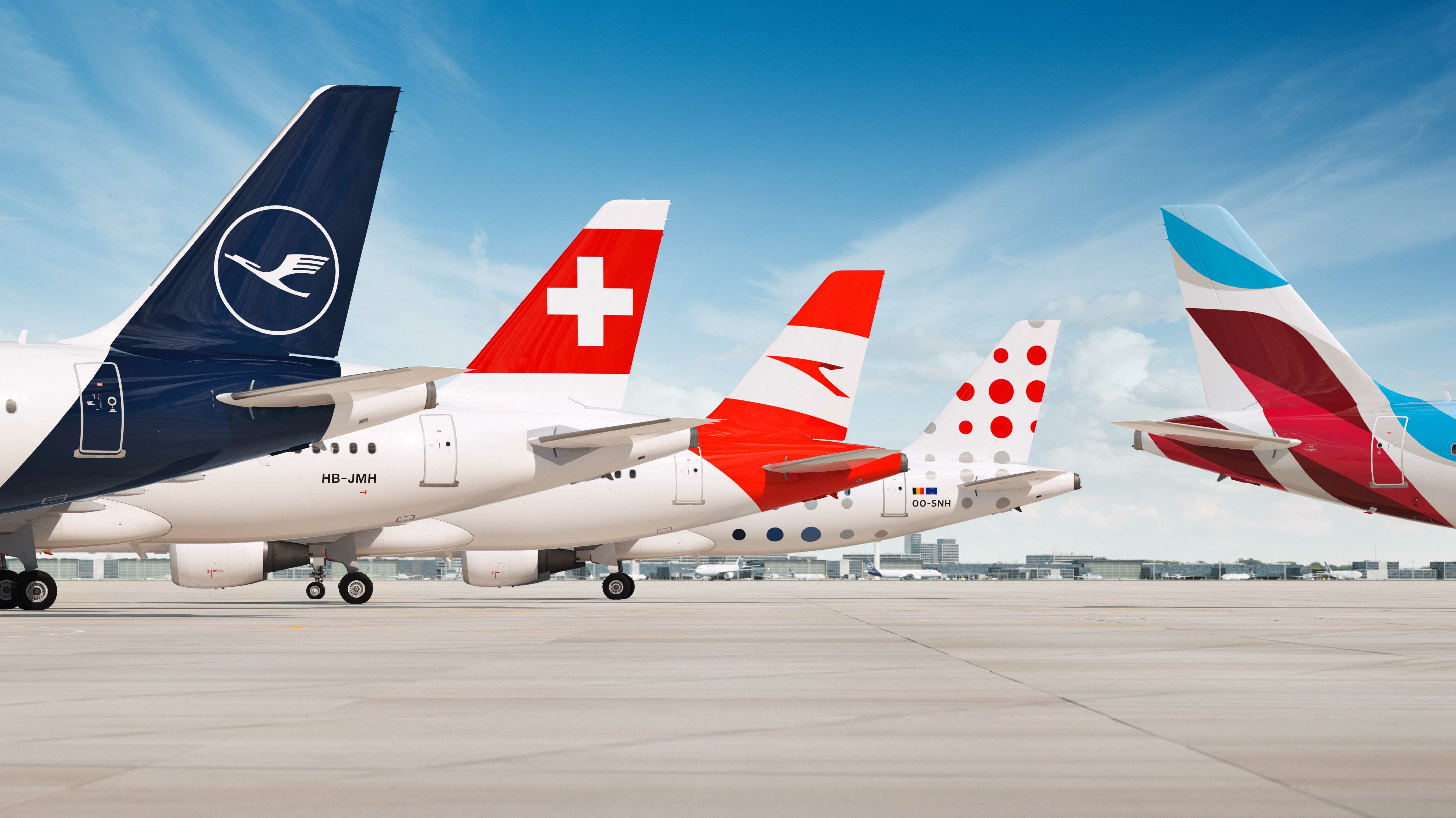The use of new aircraft with lower fuel consumption is currently the biggest lever for keeping the impact of flying on the environment as low as possible. Latest-generation aircraft require up to 30 percent less fuel than their respective predecessors and emit correspondingly less CO2.
The Lufthansa Group continuously invests in a modern and particularly fuel-efficient fleet. On several occasions, the company has been the launch customer for new, more fuel-efficient and quieter aircraft. The Lufthansa Group fleet covers many different market segments. Aircraft from Airbus and Boeing make up the majority of the Lufthansa Group fleet. Aircraft from Bombardier and Embraer are also deployed on short-haul routes. At the end of 2024, the Lufthansa Group fleet comprised 735 aircraft. The fleet expanded year-on-year by 14 aircraft. A total of 18 new aircraft were added to the fleet, compared with four retirements. When the Lufthansa Group retires an aircraft from its fleet, it is either sold and operated by another airline or recycled.
Continuous investment in more fuel-efficient aircraft of the latest generation
The Lufthansa Group is pursuing a long-term fleet strategy focused on premium quality, cost efficiency and emissions reduction. Older aircraft are being replaced by new aircraft with lower fuel consumption and thus lower CO2 emissions. The Lufthansa Group currently has around 240 new fuel-saving aircraft on its order list, including 100 long-haul aircraft of the latest design. In the medium term, the highly efficient twin-engine long-haul jets are slated to replace four-engine aircraft types that are gradually being phased out. These include the Boeing 747-400, Airbus A340-600 and Airbus A340-300 aircraft types.
At the same time, the number of aircraft models operated on long-haul routes is continuously being lowered to reduce complexity further throughout the Lufthansa Group. This will also help to reduce maintenance and operating costs and leverage further synergies, from licensing for pilots and cabin crews to more standardized on-board processes and the provision of spare parts.
Optimizing the existing fleet for greater fuel efficiency
Measures for the technical modification of the existing fleet with the aim of increasing economic and ecological efficiency are also constantly examined and implemented in cooperation with partners from research and industry. These include, for example, optimizing engines, equipping aircraft with the fuel-saving surface technology AeroSHARK, and noise-reducing measures.
Alternative propulsion technologies
Aircraft powered by electricity or hydrogen can play an important part in making air transport more sustainable in the long term. It will still be many years, however, before the underlying technologies are sufficiently mature and economically viable for large passenger and cargo aircraft. The Lufthansa Group is closely following the various developments in these fields, analyzing them in terms of their future viability and relevance and is in contact with established and new manufacturers.
In addition, the Lufthansa Group participates in various initiatives and research projects. Lufthansa Technik, for example, is currently working with partners in Hamburg to convert a decommissioned Lufthansa Airbus A320 into a ‘field laboratory’ for testing the maintenance and ground processes of future hydrogen-powered aircraft. These activities include setting up a hydrogen infrastructure on the ground and installing a liquid hydrogen tank and a fuel cell in the aircraft.


